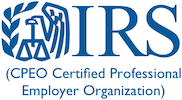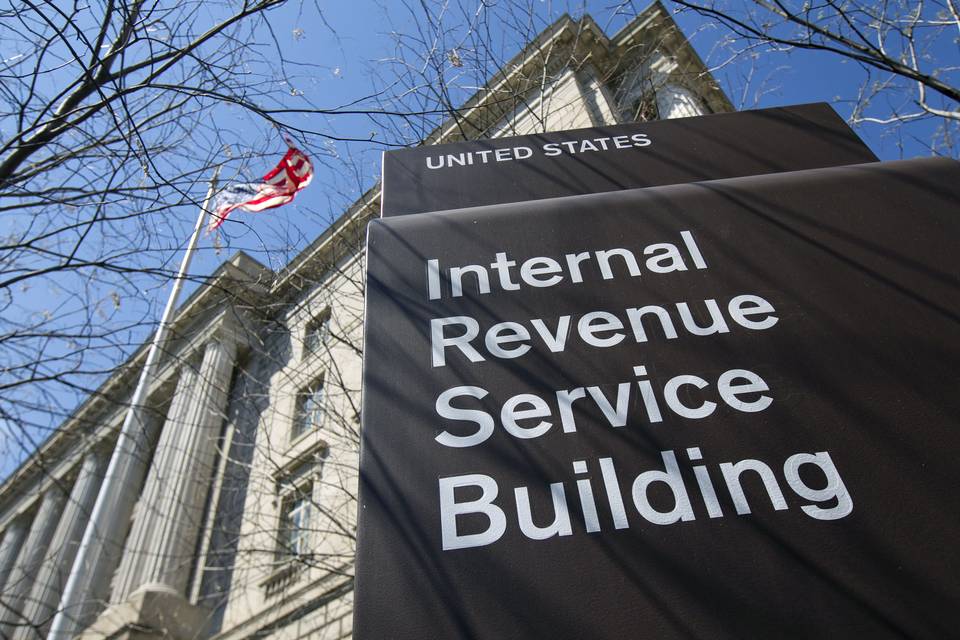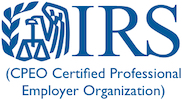What is a CPEO?
A CPEO works very much like a PEO, but takes on some added responsibilities related to payroll administration and federal employment tax reporting and payments.
 Being certified means that the PEO has applied to be certified with the IRS, has provided extensive information about its financial information, company viability, background checks on key employees, tax compliance history and other related information and has obtained at least a $1 million surety bond to guarantee the PEO’s ability to pay all federal employment tax liabilities to the IRS.
Being certified means that the PEO has applied to be certified with the IRS, has provided extensive information about its financial information, company viability, background checks on key employees, tax compliance history and other related information and has obtained at least a $1 million surety bond to guarantee the PEO’s ability to pay all federal employment tax liabilities to the IRS.

Why Choose a CPEO?
All of these standards help give employers who work with a CPEO better financial protection as well as some attractive benefits, including:
Peace of Mind
Though selecting the right vendor is an important decision, selecting the right PEO has serious financial and tax implications. Ultimately, certification assures that the trust you place in Emplicity is verified by the very agency that would otherwise come knocking at your door—the Internal Revenue Service.
No Wage Base Restart
Beginning or ending a PEO relationship mid-year can trigger a double tax payment for companies. With a CPEO, the taxes paid on the previous federal employer identification number (FEIN) will carry over. When clients begin or end a relationship with a CPEO, they are not required to restart federal payroll wage bases. Instead, the CPEO becomes a successor, preventing the client from having to pay these taxes twice.
Reduced Payroll Tax Liability
One of the top liability concerns for PEO clients is that they can be held legally responsible by the IRS for required tax deposits even if nonpayment was their PEO’s fault. Clients of a CPEO are not held liable for unpaid federal employment taxes once they remit their employees’ tax withholdings to the CPEO. Certified PEOs bear full responsibility and liability.
Confirmation of Tax Credits
Federal tax credit programs are not impacted when an employer partners with a CPEO. In addition, the CPEO can even assist clients in applying for additional tax credits they may be eligible for.
The IRS does not endorse any particular certified professional employer organization. For more information about certified professional employer organizations please visit IRS.gov.
Get started today...
Get A Quote
Free Consultation
Sales: (877) 721-8047

Book A Demo






